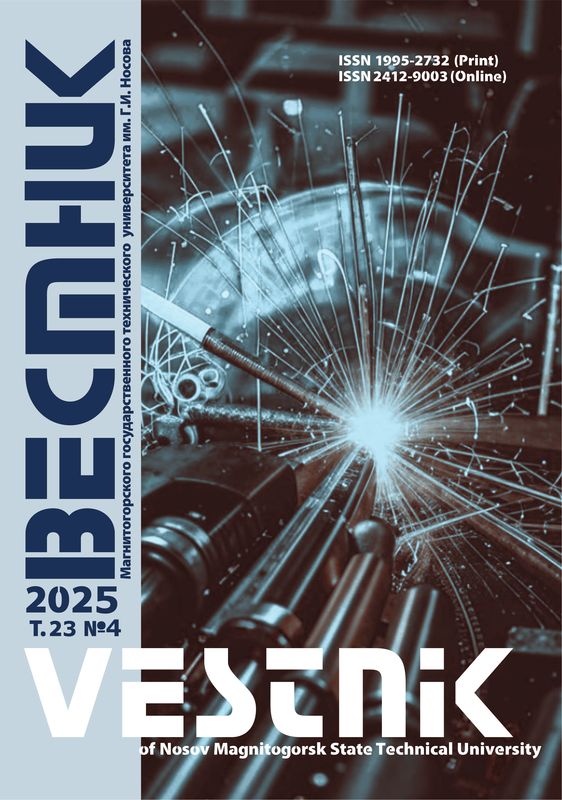DOI: 10.18503/1995-2732-2022-20-1-61-70
Abstract
The paper proposes the results of research in terms of improving approaches to planning, development, implementation, control of management process parameters by introducing new approaches to the PDCA Deming cycle. It is substantiated that, while remaining constantly within the framework of the Deming cycle (Plan-Do-Check-Act), when developing or detailing individual substages, or phases of the Deming cycle, it is possible to improve processes and increase their performance. Regarding the technological processes, the problem is solved by introducing a new approach to the Deming cycle, proposed by the author, which is confirmed by reducing time for performance of the technological process and relevant preparation, reducing a share of defects and the subsequent recovery of products. The paper describes a potential adaptation of the existing methods of project management to improve the Deming cycle PDCA and analyze performance of processes. By improving their basic principles, it is possible to reduce expenses and increase the return of an organization's business processes. Another field for the proposed application of the approach is training of specialists, as in the current information society a special role is attributed to improving the quality of training of future specialists. The paper analyzes the application of methods aimed at increasing the quality of training, while jointly applying the PDCA Deming cycle and the worldwide CDIO initiative and concept. Based on the results of the analysis, an "integrated teaching system" is proposed, following the PDCA cycle and the CDIO concept, which will greatly simplify the application of the principle of continuous improvement of processes. The paper presents that the proposed approach to coping with the task of process control, while remaining within the framework of the Deming cycle, by developing or detailing individual substages, or phases of the Deming cycle, contributes to achieving improvement of, or an increase in efficiency of processes, serving as a basis for adapting known technical solutions, proved by patents.
Keywords
quality management system, risks, process approach, continuous improvement, PDCA Deming cycle, worldwide CDIO initiative, CDIO standards, educational process.
For citation
Kunakov E.P. Applying New Approaches to the Deming Cycle. Vestnik Magnitogorskogo Gosudarstvennogo Tekhnicheskogo Universiteta im. G.I. Nosova [Vestnik of Nosov Magnitogorsk State Technical University]. 2022, vol. 20, no. 1, pp. 61–70. https://doi.org/10.18503/1995-2732-2022-20-1-61-70
1. GOST R ISO 9000-2015 Quality management systems. Fundamentals and vocabulary.
2. GOST R ISO 9001-2015 Quality management systems. Requirements.
3. Kuznetsova V.B., Sergeev A.I., Serdyuk A.I., Popov A.V. Sovershenstvovanie protsessa izgotovleniya slozhnykh izdeliy s ispolzovaniem PDM-sistem [Improving the process of manufacturing complex products using PDM systems]. Orenburg: OSU, 2013, 143 p. (In Russ.)
4. Zlenko M.A., Nagaytsev M.V., Dovbysh V.M. Additivnye tekhnologii v mashinostroenii: posobie dlya inzhenerov [Additive technologies in mechanical engineering: manual for engineers]. Moscow: SSC RF FSUE NAMI, 2015, 220 p. (In Russ.)
5. Neave H.R. The Deming Dimension: Trans. from English. Moscow: MGIET (TU), 1996, 344 p.
6. Orlik S. Software engineering. Software quality. Copyright © Sergey Orlik, 2004-2005.
7. ISO 9241-220 Ergonomics of human-system interaction. Part 220. Processes for enabling, executing and assessing human-centred design within organizations.
8. ISO/IWA 2:2007(en). Quality management systems. Guidelines for the application of ISO 9001:2000 in education. https://www.iso.org/obp/ui/#iso:std:iso:iwa:2:ed-2:v1:en
9. Worldwide CDIO Initiative. Expected learning outcomes (CDIO Syllabus): guidance. Translated from English and edited by Chuchalina A.I., Petrovskaya T.S., Kulyukina E.S. Tomsk: Publishing House of Tomsk Polytechnic University, 2011, 22 p.
10. CDIO standards. Materials of the round table "Standard of modern engineering education" of the project session of ANO Agency for Strategic Initiatives to promote new projects. April 10, 2014. Yekaterinburg: LLC Azhur Publishing House, 2014, 32 p. (In Russ.)
11. Kondratiev E.V., Chemezov I.S. The transition of Russian higher education to CDIO standards: content, prospects, problems. Vestnik Voronezhskogo gosudarstvennogo universiteta. Seriya: Ekonomika i upravlenie [Bulletin of Voronezh State University. Series: Economics and Management], 2015, no. 3, pp. 41–50. (In Russ.)
12. Kunakov E.P., Lontsikh P.A., Livshits I.I., Lontsikh N.P., Drolova E.Yu. Management and protection of information as one of the ways to improve the activities of aviation industry enterprises. Kachestvo. Innovatsii. Obrazovanie [Quality. Innovations. Education.], 2017, no. 7 (146), pp. 17–26. (In Russ.)
13. Livshitz I.I., Kunakov E.P., Lontsikh P.A. Usage of information safety requirements in improving tube bending process. International Conference on Information Technologies in Business and Industry 2018, ITBI 2018, vol. 1015, issue 4.
14. Kunakov E.P., Lontsikh P.A., Korshunova E.I., Kovrigina I.V. Analysis of digital technologies used in the machine-building industry. Vestnik Irkutskogo gosudarstvennogo tekhnicheskogo universiteta [Bulletin of Irkutsk State Technical University], 2018, no. 9 (40), pp. 42–49. (In Russ.)
15. Kunakov E.P., Lontsikh P.A., Livshits I.I., Lontsikh N.P. Improving the activities of machine-building enterprises by using modern digital technologies. Kachestvo. Innovatsii. Obrazovanie [Quality. Innovations. Education.], 2018, no. 5 (156), pp. 39–47. (In Russ.)
16. Livshitz I.I., Kunakov E.P., Lontsikh P.A. Improvement of the activities of machine-building enterprises through the use of digital technologies. Proceedings of the 2018 IEEE International Conference &Quality Management, Transport and Information Security, Information Technologies; IT and QM and IS 2018, pp. 233–237












